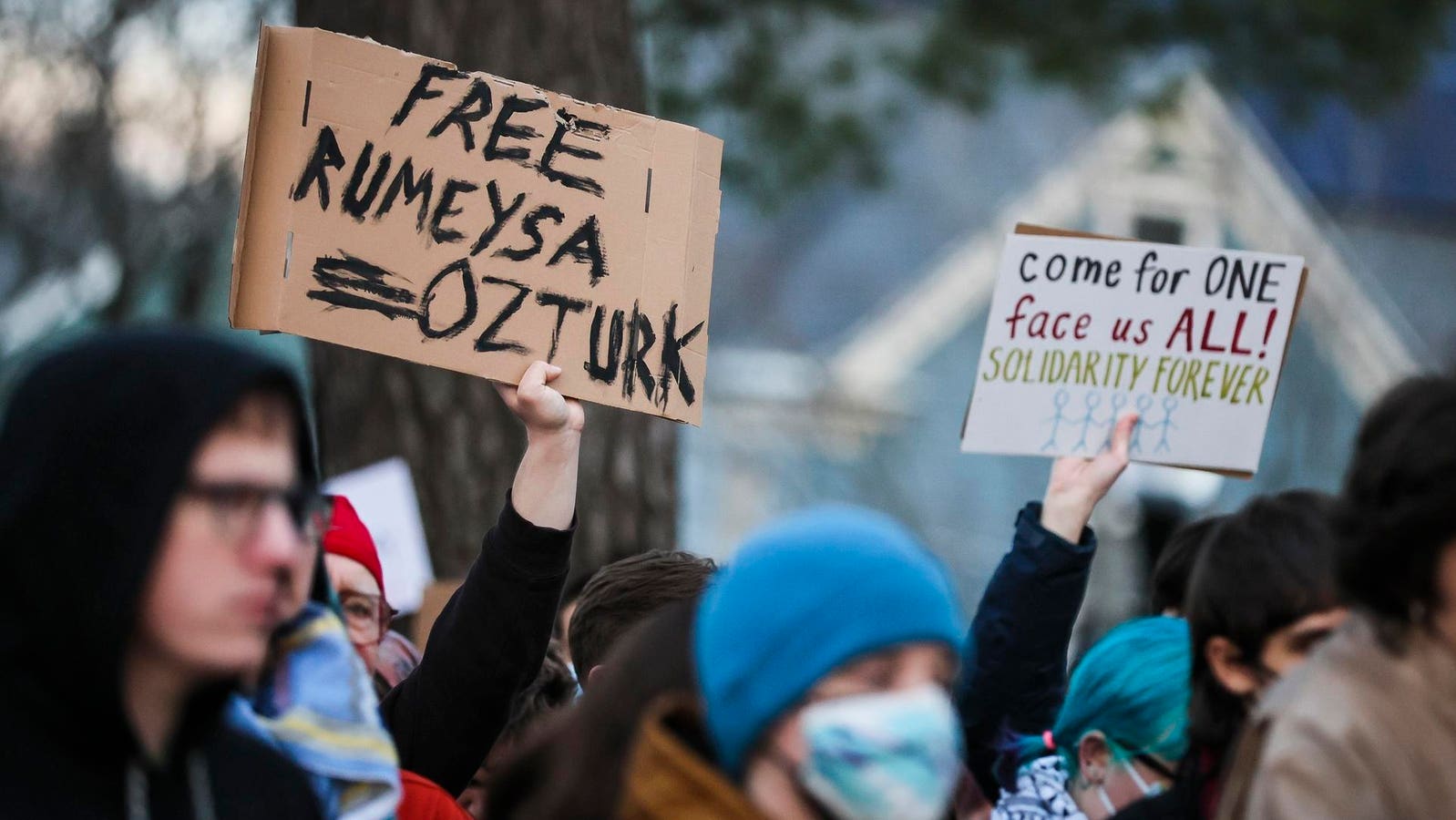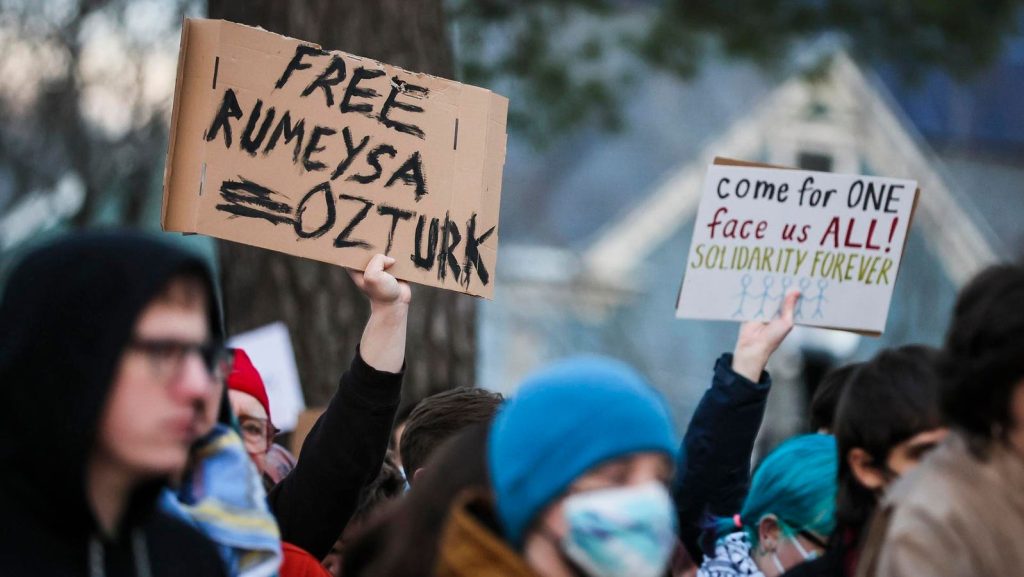Topline
Trump advisor Stephen Miller suggested Friday the Trump administration is considering suspending the writ of habeas corpus to more easily detain immigrants—meaning denying them the right to protest their detention—the latest suggestion by Trump officials that they want to get rid of traditional legal processes in order to carry out their hardline immigration agenda.
White House Deputy Chief of Staff Stephen Miller at the White House on May 6 in Washington, DC.
Key Facts
Miller told reporters the administration is “actively looking at” suspending the writ of habeas corpus, which refers to the legal process that people can use to challenge their detention and ask to be released.
“Habeas corpus” translates to “show me the body” in Latin and is a fundamental legal principle that dates back to English common law during the 1600s, requiring law enforcement to justify why they’re detaining people and produce people they’re detaining so their cases can be reviewed.
The Suspension Clause of the Constitution allows the writ of habeas corpus specifically to be suspended only “in cases of rebellion or invasion [when] the public Safety may require it,” with the Trump administration likely to argue the “invasion” of undocumented immigrants into the U.S. warrants the suspension.
That would mean the Trump administration could detain immigrants without giving them any recourse to challenge that detention and seek release, as the White House has faced numerous legal challenges against its efforts to detain and deport immigrants, including by sending people to an El Salvador prison.
The White House has not yet responded to a request for further comment on if or when the Trump administration could try to suspend the writ of habeas corpus, with Miller saying Friday it “depends on whether the courts do the right thing or not.”
Could Trump Suspend The Writ Of Habeas Corpus On His Own?
It’s unclear. The National Constitution Center notes the Constitution’s language is vague when it comes to who in the government can suspend the writ of habeas corpus, but it is commonly believed that only Congress can do so. President Abraham Lincoln suspended the writ of habeas corpus during the Civil War, but Congress then separately allowed the suspension as well, so Lincoln’s move was never challenged. That means it’s likely Trump would face legal challenges if he decided to suspend the writ of habeas corpus on his own without Congress—where it would face a lower likelihood of passing, given Republicans’ razor-thin majority—but it remains to be seen how the courts could rule.
Surprising Fact
The writ of habeas corpus has only previously been suspended four times in U.S. history: during the Civil War, in South Carolina counties during Reconstruction to combat the Ku Klux Klan, during a 1905 insurrection in the Philippines, and in Hawaii after the World War II attack on Pearl Harbor.
News Peg
Miller’s comments came as the Trump administration faced multiple court losses Friday over its detention of immigrants. The Second Circuit Court of Appeals unanimously ruled Columbia University student and Pro-Palestine activist Mohsen Mahdawi can stay free on bail, after the Trump administration detained him in April when he went to take his naturalization test to become a citizen. Mahdawi’s “individual liberty substantially outweighs” the Trump administration’s “weak” arguments for keeping the legal resident detained, the panel of judges ruled. A federal judge in Vermont then ordered the government to release Tufts University student Rumeysa Ozturk, an international student whom the Trump administration detained after she helped author an op-ed that was critical of Israel. “Her continued detention cannot stand,” Sessions said at a hearing Friday, as quoted by The New York Times, arguing Ozturk’s detention could lead to other noncitizens “avoid[ing]
exercising their First Amendment rights for fear of being whisked away to a detention center from their home.”
Key Background
The Trump administration has faced substantial legal pushback for its hardline immigration policies, as President Donald Trump has called for mass deportations and his administration has targeted even legal residents for detention and deportation. As judges have ruled against the Trump administration, the president and his allies have lashed out in response, suggesting judges should not be allowed to constrain Trump’s presidential actions and calling for judges to be impeached. It has also faced accusations of defying court rulings, with Judge James Boasberg ruling there’s evidence Trump officials acted in criminal contempt by defying his order prohibiting them from sending people to El Salvador. Miller’s comments come as he and other Trump officials have suggested the administration doesn’t believe immigrants are owed the same due process rights as U.S. citizens, meaning the requirement that the government must go through a legal process and grant immigrants a hearing before they can be deported. Trump told “Meet the Press” last week he “[didn’t] know” whether he had to uphold the Constitution when it came to deportations, while Miller claimed on X that “due process guarantees the rights of a criminal defendant facing prosecution, not an illegal alien facing deportation.” The Supreme Court has previously repeatedly ruled undocumented immigrants have due process rights in removal proceedings.









